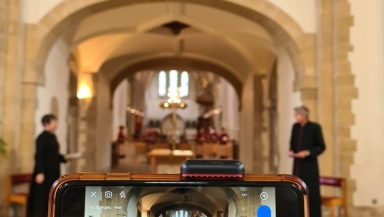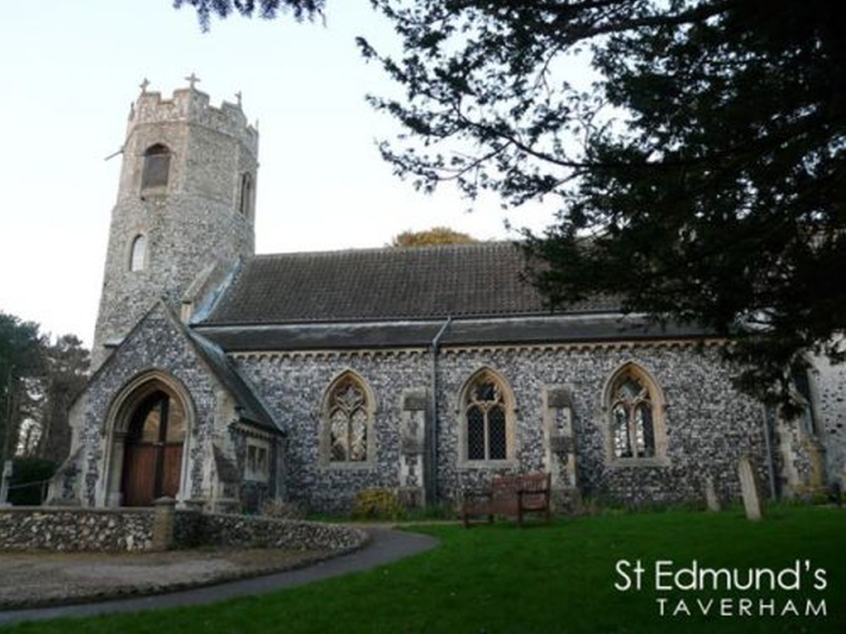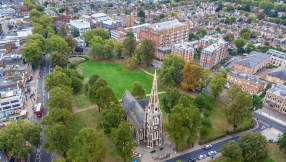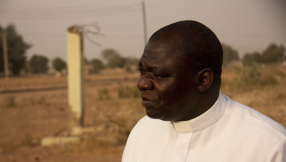
Many churches saw an increase in attendance after moving services online during the pandemic, a survey has found.
Most churches surveyed by Ecclesiastical Insurance used new channels to keep in touch with their congregation after the outbreak of Covid-19.
The vast majority (93%) used Zoom to host public events and virtual meetings after March 2020, while 60% used Facebook and 5% YouTube. Just 1% used Microsoft Teams.
A significant minority (43%) of church leaders reported an increase in attendance as a result of using these online platforms.
And nearly two thirds (62%) plan to continue streaming events even after all restrictions lift.
The survey of 1,000 leaders was carried out in May by the Bible Society on behalf of Ecclesiastical.
Michael Angell, Ecclesiastical's church operations director, said: "Churches are so important to so many people and maintaining that sense of community and the togetherness associated with that has been a lifeline during the pandemic.
"With restrictions preventing physical meetings and many experiencing isolation, either through shielding at home or lockdown, these new means of keeping in touch with congregations have proved hugely popular.
"Even though many churches are now open again, it is encouraging to see that they plan to continue with these new channels and in doing so welcome their audiences, both new and old, back into their churches."
The findings also revealed that the shift to online had required some financial investment by many churches, with over half (56%) saying they had bought new technology to make it possible.
Of these, 55% said they had spent over £500 on equipment, with half investing in sound equipment and a similar proportion (52%) in cameras. Nearly two thirds (62%) had bought equipment to support the livestreaming of services.
For over two thirds (69%), the investment drew on existing reserves, while nearly a third (30%) funded the purchases through donations.
The survey suggested the move to online was a technological leap for many church leaders, with over half (57%) saying they needed help to set things up, while nearly three quarters (73%) said they had been given support from members of their congregation.
The Grade I-listed St Edmund's Church in Taverham, Norfolk, started streaming worship and communion services at after the outbreak of the pandemic.
For rector the Rev Paul Seabrook, the change helped parishioners stay connected.
"The lockdowns were incredibly challenging for so many people and being unable to attend church really affected people within our community," he said.
"We wanted to make sure that they could still worship God and learn together as we have been doing since before the pandemic, and livestreaming has been fantastic in helping us to do that."
In addition to streaming services, the church started using Zoom for weekly coffee mornings and Bible study sessions. And Facebook was utilised to share prayers read by members of the congregation, and a 'Tiny Tunes' music and dance class for young children.
The shift to online has been a positive change for the church, which has found itself welcoming in viewers from much further afield.

Paul continued: "At the height of the pandemic we were getting over a hundred visits to our Facebook page a day, ten times as many as beforehand. We've had people tuning in from all over the country and even as far away as Arizona!
"By using social media we've been able to reach many more people than ever came through the actual church door each week, so it's definitely something we're looking to continue offering."
St Edmund's is planning to offer both in-person services and online livestreaming beyond the end of restrictions.
"We've seen how effective online services can be and we've invested in some new equipment to help us offer a higher quality experience for everyone tuning in – but we haven't lost sight of the fact that our church is for everyone, and not everyone can access the internet," said Rev Seabrook.
Despite the challenges and changes of the last year, Rev Seabrook is optimistic about the future.
He added, "We're a church for the community first and foremost and our pastoral work hasn't stopped during the pandemic.
"We've seen more people in need of support through initiatives such as food banks and have encouraged the community to rally around those more in need.
"There is certainly more hope now than there was this time last year and we look forward to the Lord leading us from this difficult time into freedom and new beginnings."













